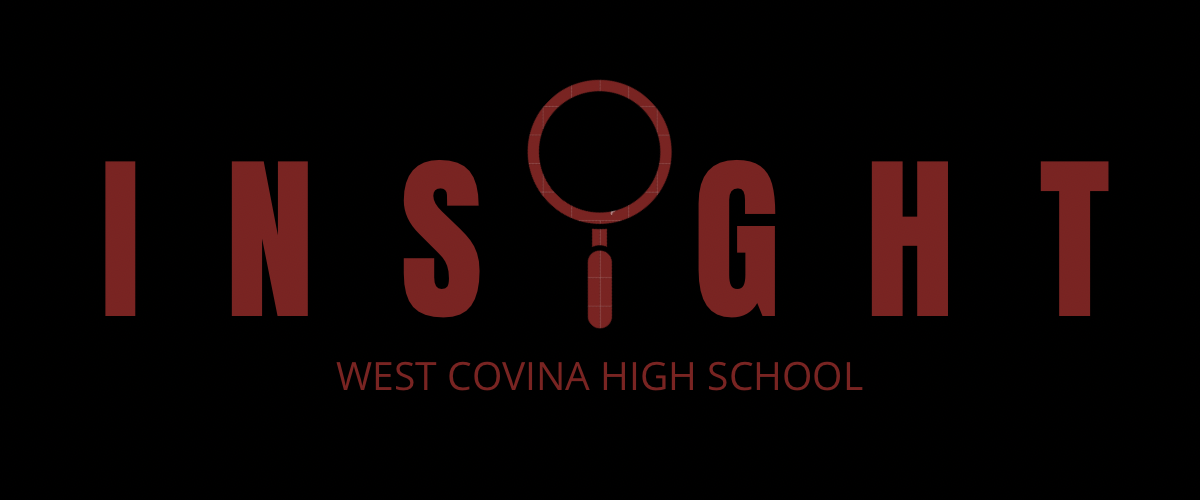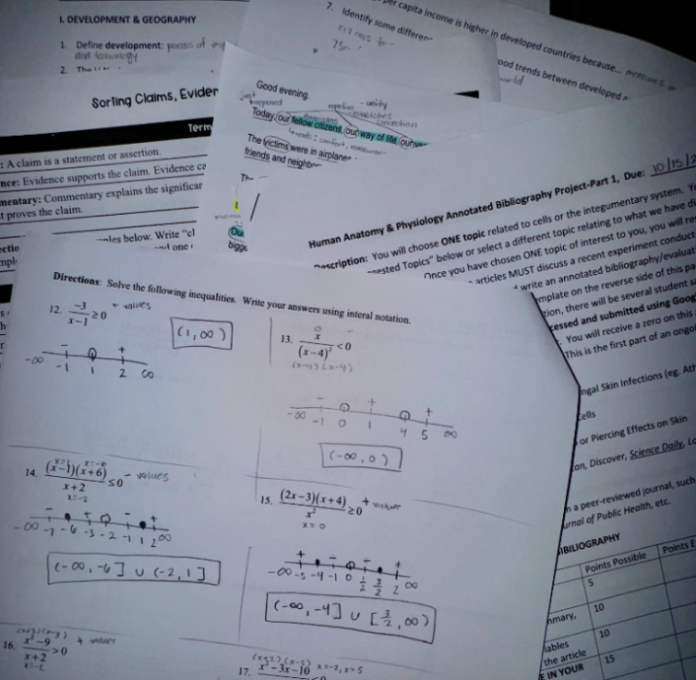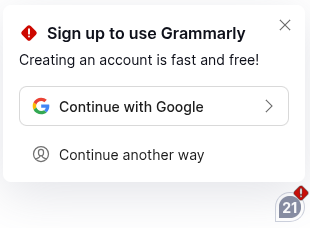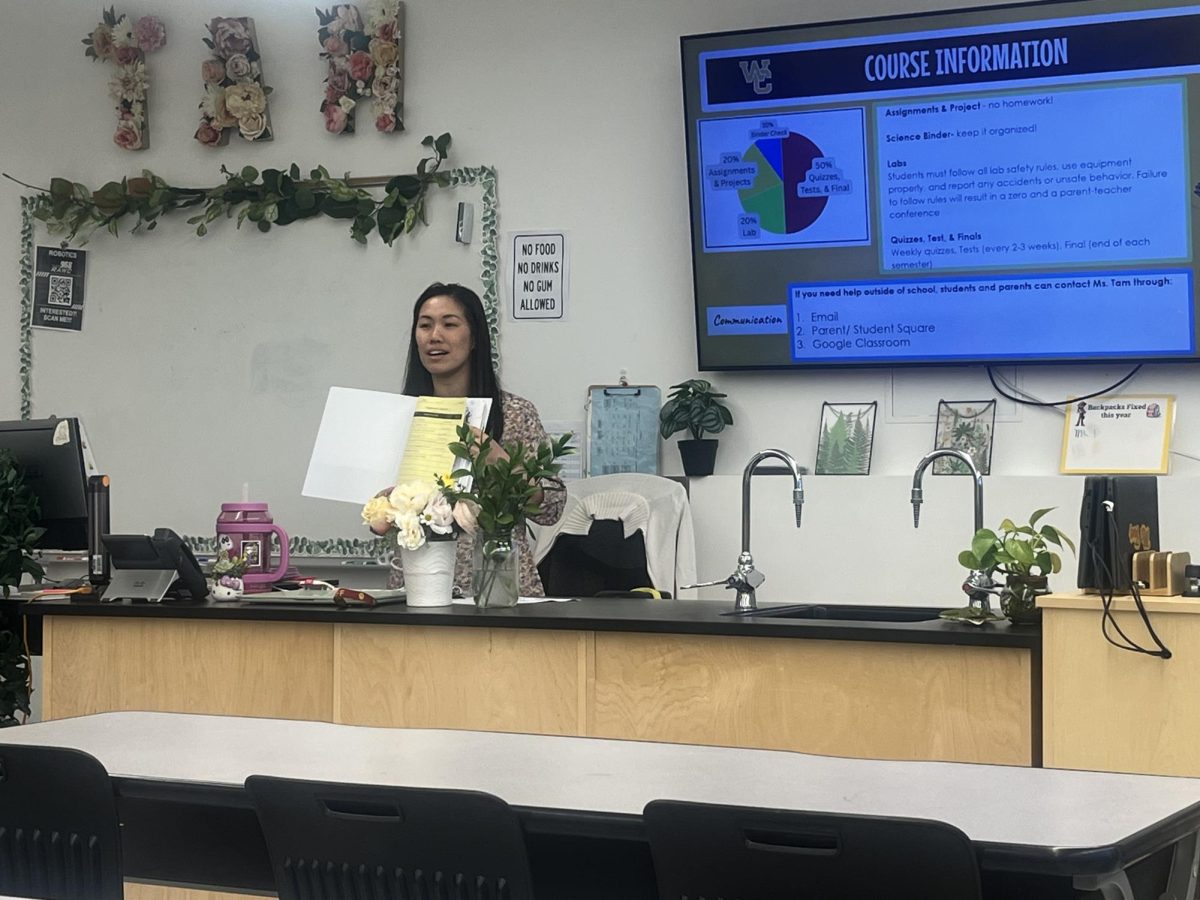High school students often express that junior year has been their most difficult year because of the added workload and the pressures to join extracurriculars in order to contribute to an outstanding college application when they are seniors. Opinions on the difficulty of junior year have led to the debate of whether or not junior year is really as challenging as people perceive it to be.
According to SoFi, an organization that focuses on financial situations and providing students with student loans, junior year is the most difficult year of high school due to the hefty amount of assignments given and the pressure to begin preparing for college. As students progress through high school, courses increase in difficulty depending on what class they chose as the right fit for them. Colleges often focus on a student’s grades their junior year when they begin to apply to college.
Many students will incorporate college level classes like Advanced Placement (AP) courses in order to prepare for the real college classes and improve critical skills like analysis and writing.

Junior AC Chung is currently involved in DUB. C, Performing Arts Academy (PAA), theatre production, Link Crew, California Scholarship Federation (CSF) and the Asian American Appreciation (Triple AC) Club. He also is currently taking four AP classes including AP Seminar, AP Biology, AP Calculus BC, and AP English Language. He indicated that as the school year progresses, it is increasingly becoming more stressful and heavy.
“So far the workload is like, increasingly getting harder, like at first I thought it was like, pretty chill but then as, like, the grading period ended it’s like serious now,” said Chung.
Despite the challenges that extracurriculars and AP classes bring for Chung, they don’t take away from the enjoyment that the extracurriculars bring to his day.
“It’s been nonstop events… I’ve been here from like, 7:30 in the morning until like 10:00 PM… but it’s also- it’s also fun, all the events they- they make it worthwhile,” said Chung.
He further added that he enjoys spending time with friends, listening to music, playing guitar, and sleeping as a way to de-stress from all the work.
In addition to the challenging aspect of managing a busy schedule for all events of the day, College Transitions, a team of college counselors that assist students in the college admissions process, noted that AP English Language, a course offered to students in the eleventh grade, is considered to be in the top ten of the most difficult AP courses and includes that 56.1% of students who took the exam in 2023 passed with a 3 or higher, concluding that only a little more than half of the students who take the test pass.
English and AP Lang teacher Stephanie Perluss has been teaching English for 18 years. She has firsthand knowledge of her students’ thoughts that the course is one of their most difficult classes since she is often met by barriers from students taking the class.
“AP Lang in particular is really challenging ‘cause it’s a different kind of English than we’re used to…I’m teaching you how to use a different part of your brain,” said Perluss.
She has noticed that, due to the unique and difficult subject matter, it often takes students time to get comfortable with the subject. During the second grading period is when Perluss reports that students begin to comprehend the material and become more engaged. However, she adds that it can be difficult when students arrive to class with the idea that it is going to be hard. As junior year students are equipped with that mindset, they often let that take over when engaging in their classes.
“Honestly, I think that because kids come in with that mindset, it’s really hard to get over that… I feel like this is about the time… that’s usually when the kids and I start warming up to each other ‘cause they walk in knowing that it’s going to be hard,” said Perluss.
Though, Perluss adds that once the walls come down and students get comfortable with the course, it is easier for her to acclimate students to the workload and the skills necessary to succeed in the class.
Along with English classes, three years (four recommended) of math are required to pass in order to meet the graduation requirements. Math teacher Joe Osterberg currently teaches math two enhanced and AP Calculus BC, a course where the majority of his students are juniors and explained that although the year is challenging, it is students’ perceptions that can make it difficult.

“It varies from student to student… It’s not like juniors or seniors have any advantage in a class like this. Yes, students struggle in all classes depending on the student, depending on the subject, depending on ten thousand other things that are going on in their lives… but that’s gonna happen in any class regardless of freshmen, sophomore, junior, senior,” said Osterberg.
Senior John Ha stated that his junior year was actually not his hardest year, despite taking four AP courses and being involved in Key Club, CSF, United Nations International Children’s Emergency Fund (UNICEF), and Interact, it consisted of what he felt were classes meant to fill up his schedule. He adds that to manage his schedule, he plans his days in advance.
“I feel like I didn’t really take too many AP courses and the course load that I had wasn’t as much as senior year,” said Ha.
Senior Kylie Chao is currently in Bulldog News Network (BNN), Air Force Junior Reserve Officer Training Corps (AFJROTC), Computer Honor Society, Math Club, National English Honors Society, and Link Crew Club as well as five AP courses in her junior year.

“Senior year if I’m being completely honest it’s, like, it’s harder than junior year in terms of work… and like college apps on top of it,” said Chao.
She expressed that when the workload became stressful, she would de-stress through talking out her thoughts to those close to her or even a counselor which also assisted her in figuring out where to go from there in terms of returning to completing or managing the school work. She also mentions attempting to maintain her grades her junior year and the idea of college could become overwhelming.
“I wish I wasn’t so hard on myself, I wish I told myself it’s okay to get like a lower score than you usually get. Like- it doesn’t define my intelligence,” said Chao.
Essentially although junior year can be mentally challenging for high school students as they encounter learning how to manage their classes and extracurriculars, it is significant to their growth. School is meant to teach students and prepare them for their lives once they graduate and although it can be strenuous, it is of importance that they learn those skills while they can to prepare them for life after high school.








